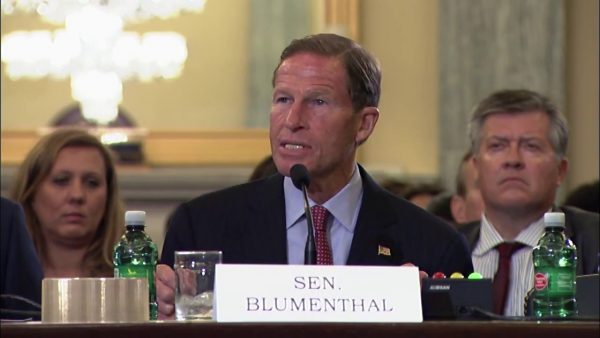SESTA’s Growing Threat To The Sex Worker Internet

You can always count on a corporation to look out for its own interests. An existential threat to their business model will even trump the good PR that comes from beating on everyone’s favorite marginalized punching bags, sex workers). So, until recently, major tech companies like Facebook, Amazon, Twitter, and Google opposed SESTA,the Stop Enabling Sex Traffickers Act. Their business models depend on user-generated content, and SESTA would overhaul Section 230 of the Communications Decency Act of 1996 which previously protected internet platforms against liability for the actions of users.
But following a compromise earlier this month between Silicon Valley and the bill’s Congressional sponsors, SESTA has passed the House and is headed to the Senate. Though they tried to keep their involvement quiet, cloaking their advocacy in the lobbying group the Internet Association, tech companies pushed hard for changes to the bill. An amended version of the bill released on November 3 by Senator John Thune addressed many of their concerns. Initially, SESTA took aim at any facilitation of user sex trafficking. But an amendment to the bill now specifies only “knowing conduct” as “participation in a venture,” meaning in general terms that sex worker advertising sites are now the only ones on the hook while Facebook and company remain immune from sex trafficking liability. Another key revision that spurred a change in the Internet Association’s position involved the development of bots policing content. In earlier versions of SESTA, developing such bots would constitute knowledge of the platform being used to facilitate sex trafficking. Similarly, Backpage’s keyword filters for policing content were used in its Senate hearing as evidence that it had knowledge of and was facilitating sex trafficking. Its own reporting efforts were used against it.
The bill also now specifies that state law enforcement officials using SESTA to prosecute individuals or entities would have to use federal law as a basis for their actions. That’s very handy for the tech companies, as in some states, “sex trafficking” can mean just about anything. While the federal definition of sex trafficking involves force, fraud, or coercion (or the involvement of minors, though this leads to situations in which young street youth get arrested for trafficking for helping their friends in the business as soon as they turn 18), a number of states, such as Alaska, have much broader definitions. This can include cases such as two escorts simply working together. A 2012 records request found that two such escorts were arrested and charged with sex trafficking as well as with prostitution—both alleged victims were arrested and charged with sex trafficking each other.
The bill remains draconian. There are enormous liabilities attached to user content for internet companies, which is a huge incentive to police that content heavily. Platforms that host advertising for sex workers are definitely still in the crosshairs. In fact, as the Electronic Frontier Foundation (EFF) points out, SESTA will even target companies retroactively, a measure that was no doubt included as a way to go after Backpage. No actual intention to assist in any sex trafficking is necessary in the newest version of the bill either, so long as it is “facilitated” in some way, a term which courts have interpreted broadly.




